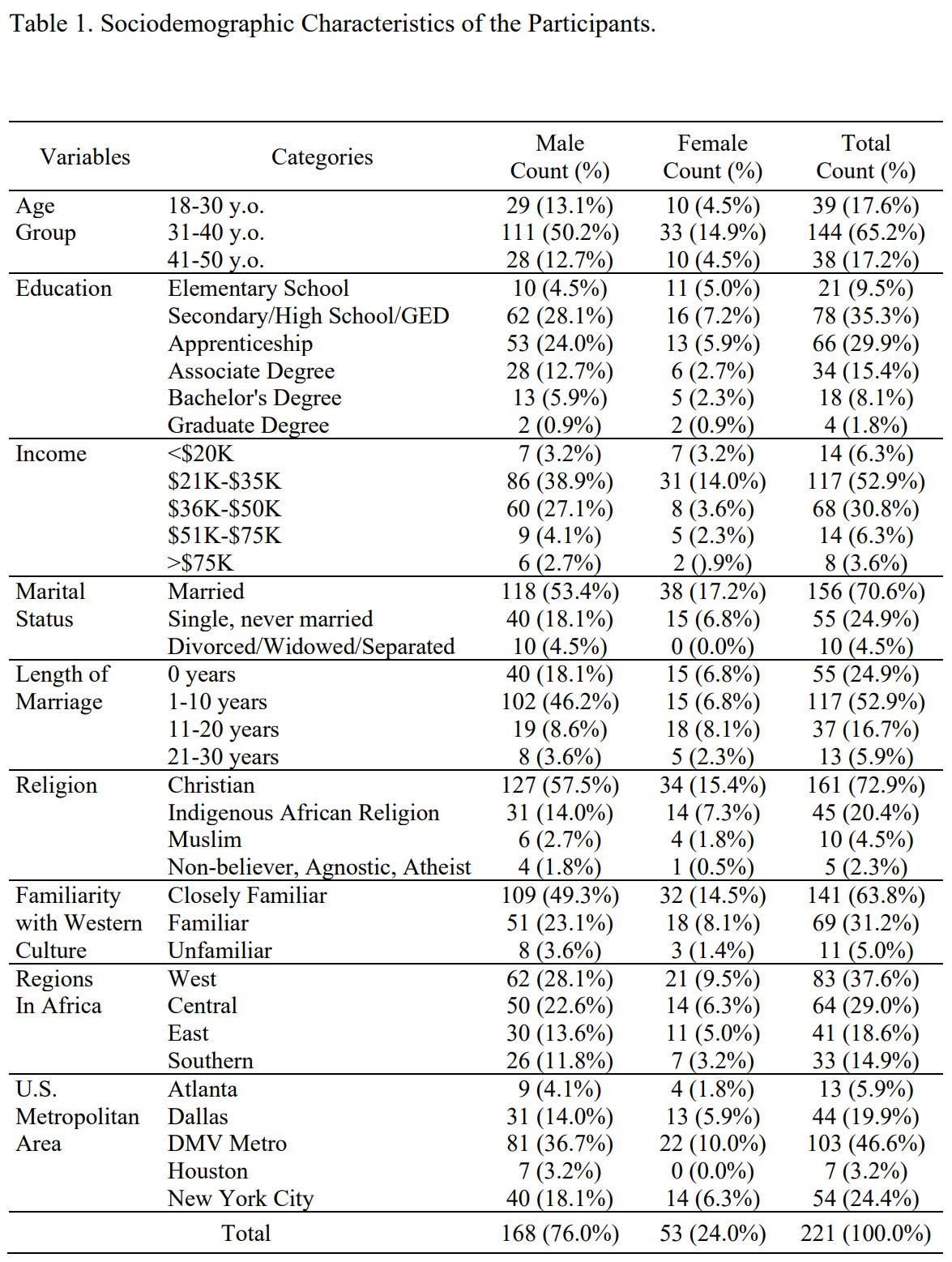Hey - Nnamdi here!
Today, I want to share the summary of my study.
If you want to get into the technical details because of insomnia or boredom, the full research is published here https://dash.harvard.edu/handle/1/37373999
As I ruminated in a coffee shop a while ago, I had a hunch that changes in gender roles contribute to acculturative stress. Adapting to a new culture involves a psycho-social cost(acculturative stress), in this case from a traditional one to a less traditional one. As part of my grad thesis at Harvard, I designed a study around this idea asking three questions:
(a) what is the magnitude of the gender-based differences in acculturative stress,
(b) what is the link between the gender-based differences in acculturative stress and gender roles attitudes,
(c) what factors explain the most the gender-based variation in acculturative stress?
A priori, my educated guess was that women would feel less stress than men since they are less rigid towards roles. And that prior exposure to western culture and level of education are things that contributes significantly to our stress experiences.
In this study, I wanted to fill some gaps in the literature, like over-reliance on qualitative methods, small samples and under-examining gender differences. Things that made it difficult to generalize results. Not only are African immigrants understudied in scientific literature, but current literature does not take into account other factors and social demographic dynamics of African immigrants.
I guess we could use more scientists?
But most importantly, this study was meant to satisfy my curiosity.
A screening questionnaire and three research instruments were combined in an online survey that I developed. Recruiting efforts focused on organizations in the NY, Houston, DMV, Dallas and Houston areas because there is a concentration of African immigrants in those areas. A total of 218 adults were needed in these areas. Data collection began after defining variables, methods, statistical analysis, criteria for participants, and obtaining approval from the Harvard Committee on the Use of Human Subjects.
Here are some highlights from the findings
Sociodemographic characteristics of the participants
168 males made up 76.0% of the sample, while 53 females made up 24.0%.
Participants by region
The focus was on the 46 countries of sub-Saharan Africa
What surprised participants about gender relations in the US?
On this question, one participant commented “women do not understand what marriage is.”
Conclusion
Surprisingly, there was no statistically significant difference between genders in acculturative stress, according to the study. There is no statistically significant link between gender-based differences in acculturative stress and gender roles attitudes. Personal income, familiarity with western culture, and educational level play a significant role in acculturative stress variation by gender.








